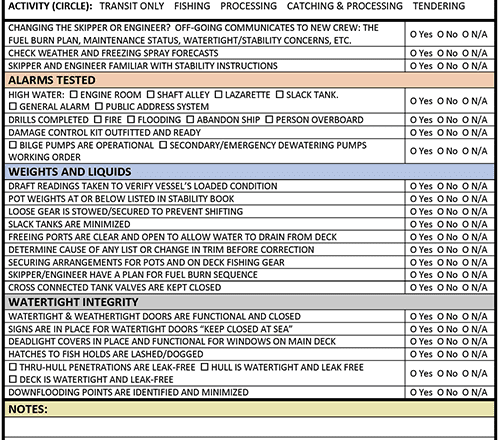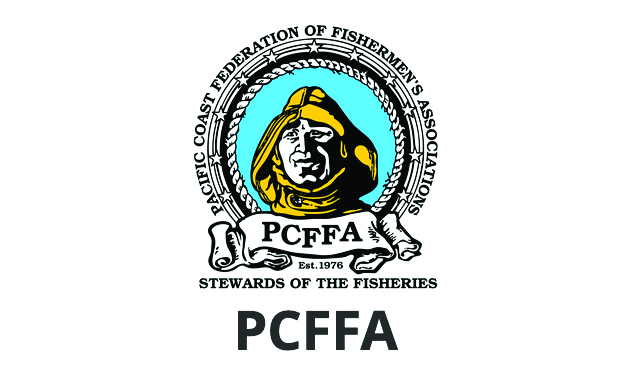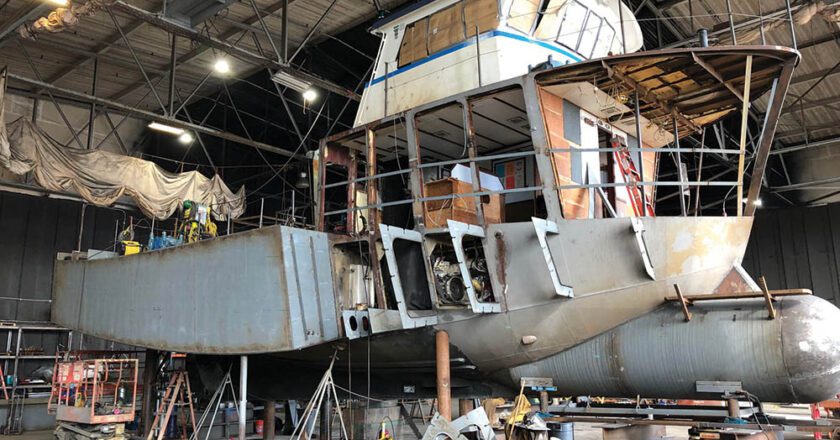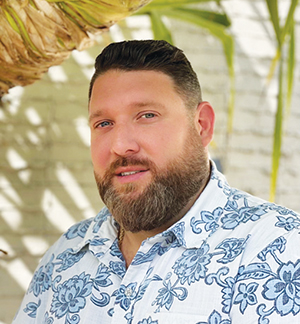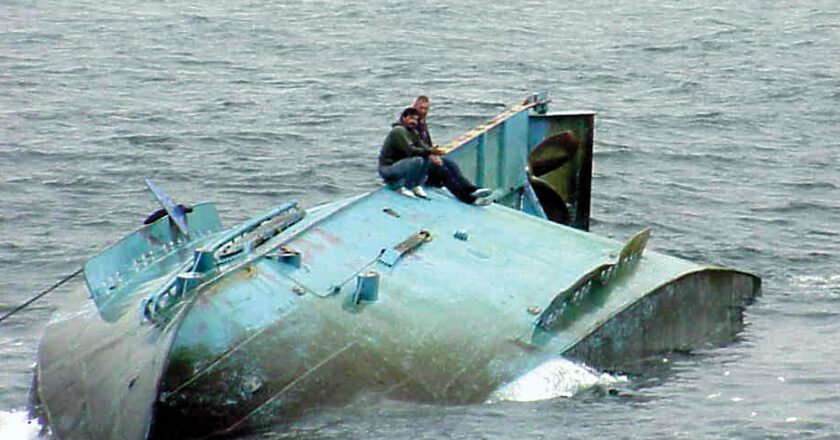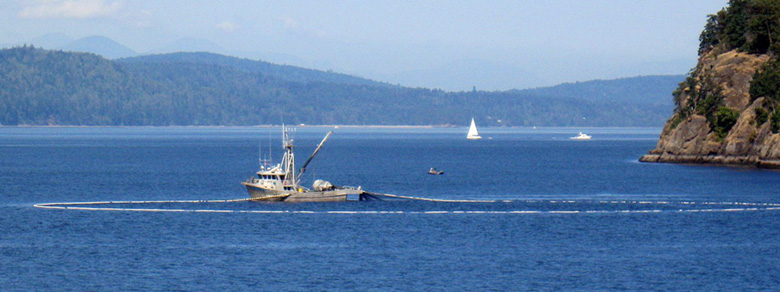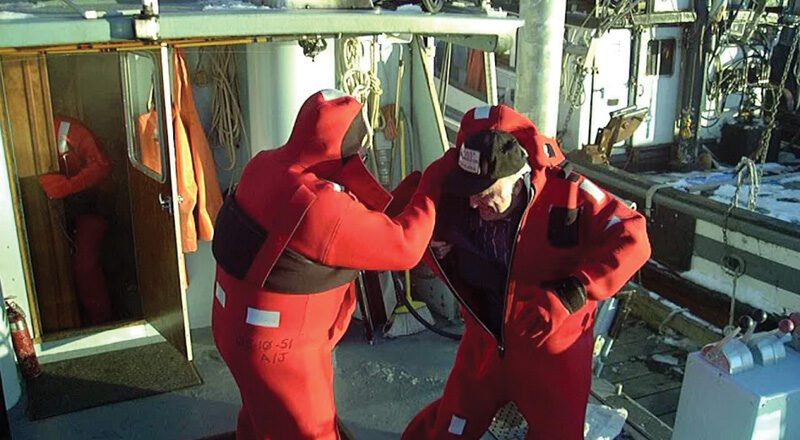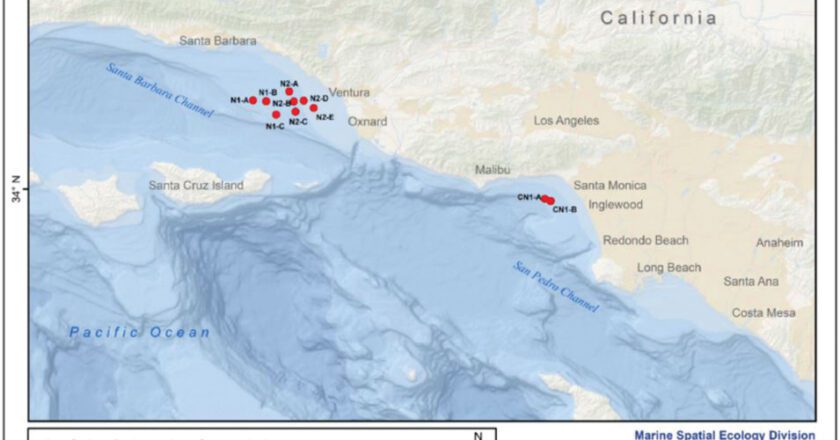Operational Stability—Stay Upright and Watertight
Continuing our series on fishing vessel stability, this month’s article focuses on operational stability and offers some tools to help the folks on board keep things ‘Upright and Watertight.’
In the previous two articles we covered the importance of stability training: fishing vessel-specific-training, and which vessels and at what thresholds do stability regulations apply. Now, you put your vessel to use.
The decisions made by the skipper, engineer and crew, combined with the physical forces of nature, make for a complex and dynamic scene that if allowed to get out of hand, can cause catastrophe. Here are some ways to mitigate the risks while at sea.
Maintain Watertightness
Keep doors and hatches always secured except while using them. If the manually operated six-dog door is too muc...

